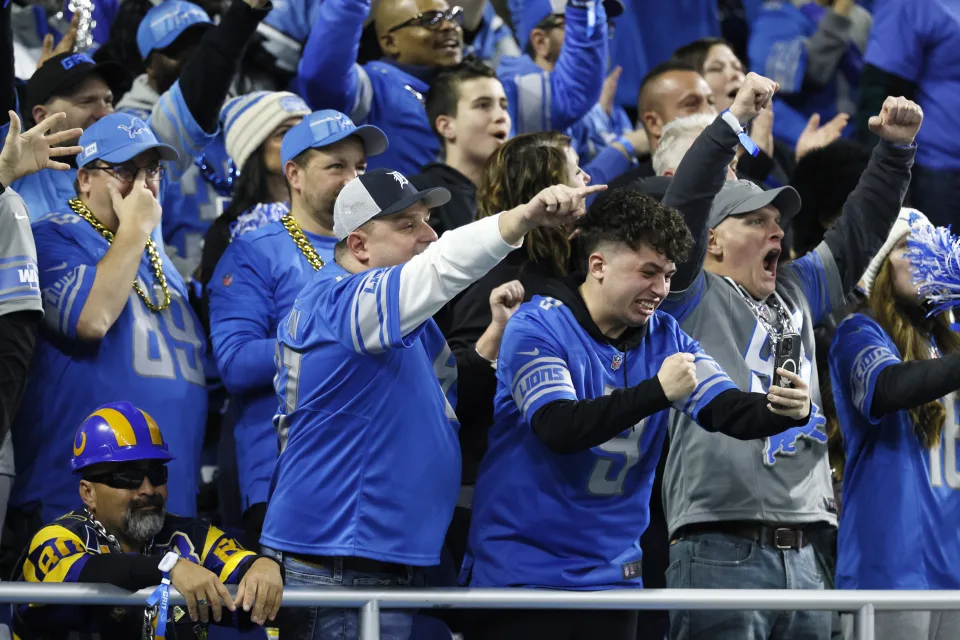
DETROIT—The roar was primal. It was visceral. It was generational. It felt like it couldn’t get louder, but it did. It seemed like it couldn’t last, and yet it never did. It shook the beams at Ford Field and flowed out of television sets around the country.
Obviously, it was loud. More than 66,000 ecstatic Detroit Lions supporters packed a roofed stadium downtown. That doesn’t include the millions more in crowded bars, living room watch parties, or even alone, pacing in tense panic, at least until head coach Dan Campbell called for victory formation with the scoreboard showing Lions 24, Rams 23.
However, because this was more than simply an NFL wild-card game, there was more to the crowd noise, whether it was intended to distract or celebrate. It was the roar that some had waited 32 seasons for, while many others had given up hope that it would ever come.

It emanated from the depths of so many missed seasons and opportunities; missed chances at what they were finally experiencing. Throughout the decades, it didn’t feel like Detroit had an NFL franchise, at least not in any significant capacity.
They hadn’t won a playoff game since the 1991 season and hadn’t hosted since 1993. Before that, there had been no postseason victories since 1957. Instead, they had winless seasons, Millen Man Marches, and ludicrous situations, such as when a player was cut and grabbed his replacement’s suitcase or when an assistant coach was arrested for being drunk and nude in a Wendy’s drive-through.
That was the Lions, a punchless recurrent punchline that served as a persistent reminder of failure in a city keen to be seen for what it is becoming rather than what it was.
All the while, Lions fans had to watch other fans from other areas, including expansion franchises and bandwagon followers, experience the pleasure of professional football.
These magnificent January nights, these playoff streaks, have the ability to galvanize towns. They go beyond city and suburb, employer and employee. They cross races, religions, and political ideologies.
Leave a Reply